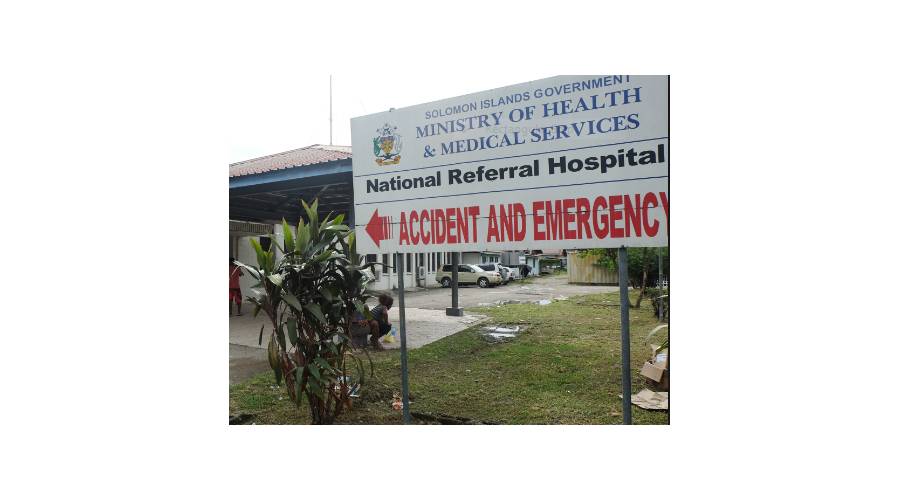21 July 2022
In the Solomon Islands we learned today that the MHMS has seen to the delivery of medical supplies that will soon be dispatched to Medical Store in Honiara and then be available to the NRH in treating patients will a wide number of illnesses and serious health issues.
In a follow up letter I write this morning, I expressed my concern that many of the medical issues affecting patients at the NRH have been brought on by preventable causes and are classed as being NCDs or Non Communicable Diseases, including diabetes, heart disease, liver disease, stroke and even some cancers.
I want to concentrate a little on the prevention of heart attacks and wish to share some habits that lead to heart attacks and the kind of things one must do to prevent a heart attack occurring.
Minimal activity and maximal intake at the wrong time of the day is a harbinger of heart attack as well as other problems due to deposition of calcium and cholesterol in the arteries going into your brain, kidneys, heart and intestines. Here are some important habits which can curb a heart attack
‘Healthy lifestyle for a healthy heart’, this should be the punch line for everyone who is above the age of 25 in any developing country like the Solomon Islands. International health and fitness experts point out that there is a barrage of new change in food habits, alcohol intake, smoking, change in acceptable limitations of these bad habits and most important - excess amount of food available at quick disposition.
In an interview with HT Lifestyle, a, Consultant, Cardiovascular and Thoracic Surgery [CVTS] pointed out, “Minimal activity and maximal intake at the wrong time of the day is a harbinger of disease namely heart attack, as well as other problems which can be because of deposition of calcium and cholesterol in the arteries going into your brain, kidneys, heart and intestines. So, this collectively causes reduction in the particular artery. In this case if it is in a heart artery it is called heart attack.”
He suggested the following important habits which can curb a heart attack:
Dietary modification - Eat sensible, have good intelligent choices when it’s come to outside food. Try to reduce the amount of quick service restaurants or high intake of salt or fried items. Maybe settle for a simple sandwich with some amount of vegetables. Try to avoid things like pizza and eat simple food with less amount of salt or sugar.
Exercise - Burning of the excess calories and excess fats all around your body is a very important and can reduce chances of getting a heart attack especially
Carefully examining your family tree - Understanding the potential hazards of contracting any type of cardiovascular disease, including heart attacks, paralysis, kidney disease and artery blockages. If there is a heart attack index case in your family, it will be one of the parents or a very close generation of relatives, such as uncles and aunts, if the heart attack occurred around the age of 50. As a result, you should start checking yourself after the age of 35 because you might have a reassuringly high risk of getting yours.
Maintaining a very minimal amount of alcohol intake and complete refrainment of tobacco - Preventing acquired causes of coronary artery disease is of utmost importance. Keeping a close eye on vitamin B12 intake should also be a top priority. Serum homocysteine levels should also be checked in order to determine whether any particular patient has a family history of early coronary artery disease. These are preventive in many individuals, and straightforward vitamin B complex additions as well as their contributing variables can help avoid serious coronary artery disease in the populations we are seeing today.
Monitor your blood pressure - High blood pressure gradually increases the blood flow in the arteries which makes them less elastic and also damages the cells of the arteries inner linings. The fats from the diet gets collected in these damaged arteries resulting in decrease of oxygen rich blood flow to the heart, this can lead to heart attack. Checking your blood pressure on regular basis can help to keep it under control.
Eat a heart healthy diet - Diet is one of the important factors which can help to keep your heart healthy. Other risk factors for heart disease like cholesterol, high blood pressure, inflammation etc. are affected by your diet. Avoid foods which have high levels of saturated & trans fats, salt and sugar. Regular intake of foods which are rich in fibre, minerals, vitamins, whole grains and healthy fats can boost your heart health.
Exercise regularly - Obesity is a factor that can lead to the onset of cardiac complications. Continuous physical activity is necessary to keep your weight in check. Regular physical activity can also help to control or modify cholesterol level and high blood pressure which are the major risk factors for heart disease. Jogging, running, working out at the gym or home, there are plenty of activities you can do to keep your heart healthy.
Manage your stress – Stress is a major contributor to all kinds of problems in our life – physically, mentally, emotionally, and psychologically. Ongoing stress also known as chronic stress can lead to unhealthy lifestyle habits like smoking, drinking too much alcohol, less physical activity and overeating which can affect the heart. Effectively dealing with stress is very important. There are many ways like deep breathing, yoga, carving time for hobbies etc., if done on regular basis can help to reduce stress.
Source. Health News.
Yours sincerely
Frank Short



